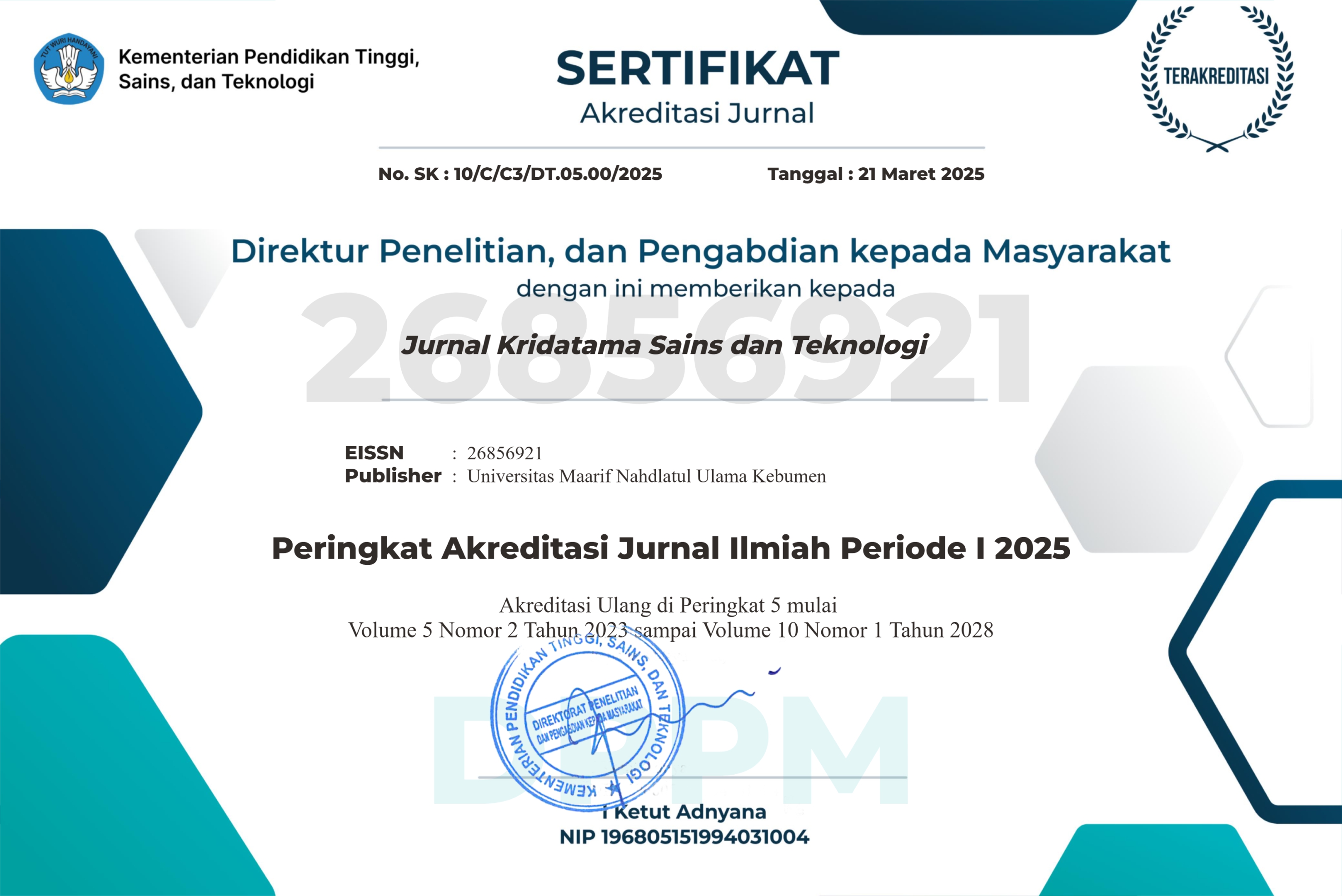Tantangan Pendidikan karakter di era digital
DOI:
https://doi.org/10.53863/kst.v6i01.1006Keywords:
Character Education, Digital EraAbstract
In a digital environment, students are exposed to various stimulations that can influence the formation of their character. The main challenges include how to teach honesty and responsibility amidst the abundant flow of information, as well as guiding the younger generation to develop digital literacy that is balanced with life values. Other challenges include the development of cyberbullying behavior, social media addiction, and lack of supervision in the use of technology. Collaborative efforts are needed between educators, parents and related parties to create a balanced educational environment, where technology can be a tool that supports character development, not an obstacle to it. Therefore, innovative strategies and holistic approaches need to be implemented so that the character of education remains relevant and effective amidst dynamic changes in this digital era. The aim of this research is to solve the challenges of character education in the digital era and solutions to overcome them. The method used in this research is a library study. The results of this research show that with the right strategy, such as integrating character values in the digital curriculum and actively involving parents, character education in the digital era can become a solid foundation for positive personal development in an increasingly connected generation.
References
Annisa Dwi Hamdani. (2021). Pendidikan Di Era Digital Yang Mereduksi Nilai Budaya. Cermin, 5(1), 62–68.
Ash-shidiqqi, E. A. (2021). Peluang Dan Tantangan Pendidikan Karakter Di Era Pembelajaran Jarak Jauh. Paris Langkis, Vol.2 Nomo, 22–29.
Astuti. Y. D. (2017). Peperangan Generasi Digital Natives Melawan Digital Hoax Melalui Kompetisi Kreatif. Informasi Kajian Ilmu Komunikasi, 4(7), 23.
Boiliu, F. M. (2020). Pendidikan Agama Kristen Yang Atipatif Dan Hoaks Di Era Digital: Tinjauan Literatur Review. Gema Wiralodra, Vol 11, No, 154–169.
Dini Palupi Putri. (2018). Pendidikan Karakter Pada Anak Sekolah Dasar di Era Digital. AR-RIAYAH, 2(1), 12–18.
Ditjenpp. (2017). Peraturan Presiden No 87 Pasal 2 Tahun 2017, Penguatan Pendidikan Karakter. Kemenkumham. http://ditjenpp.kemenkumham.go.id/arsip/ln/2017/ps87-2017.
Ermindyawati, L. (2019). Peranan Guru Pendidikan Agama Kristen Terhadap Perilaku Siswa-Siswi Di SD Negeri 01 Ujung Watu Jepara. FIDEI: Jurnal Teologi Sistematika Dan Praktika, 2(1), 40–61. https://doi.org/10.34081/fidei.v2i1.27
Lase D. (2019). Pendidikan di Era Revolusi Industri 4.0. Sunderman, 12(2), 28–43.
Lestari. S. (2018). Peran Teknologi Dalam Pendidikan di Era Globalisasi. Edureligia, 2(2), 94–100.
Muzdalifah, A. A. (2022). Pendidikan Karakter: Tantangan, dan Solusinya di Era Digital. https://bata-bata.net/2022/08/31/Pendidikan-Karakter-Tantangan-dan-Solusinya-di-Era-Digital.html
Prasetyawati, W. (2010). Pola Asuh Orangtua dan Prestasi Belajar Anak. RajaGrafindo Persada.
Riduwan. (2009). Metode & Teknik Menyusun Proposal Penelitian. Alfabeta.
Salman Hasibuan. (2015). Budaya Media dan Partisipasi Anak di Era digital. Proceeding of International Post-Graduate Conference, 833.
Samani, M. & H. (2017). Konsep dan Model Pendidikan Karakter. PT. Remaja Rosdakarya.
Setiawan. W. (2017). Era Digital dan Tantangannya. Seminar Nasional Pendidikan 2017.
Sukimah, dkk. (2016). Seri Pendidikan Orang Tua: Mendidik Anak di Era Digital. Kementerian Pendidikan dan Kebudayaan.
Verdinandus Lelu Ngongo, Taufiq Hidayat, dan W. (2019). Pendidikan Di Era Digital. Prosiding Seminar Nasional Pendidikan Program Pascasarjana Universitas Pgri Palembang, 7.
Downloads
Published
How to Cite
Issue
Section
License
Copyright (c) 2024 Kartika Sagala,Lamhot Naibaho,Djoys Anneke Rantung

This work is licensed under a Creative Commons Attribution-ShareAlike 4.0 International License.
Authors retain copyright and grant the journal right of first publication with the work simultaneously licensed under a Creative Commons Attribution-ShareAlike 4.0 International License that allows others to share the work with an acknowledgment of the work’s authorship and initial publication in this journal

















